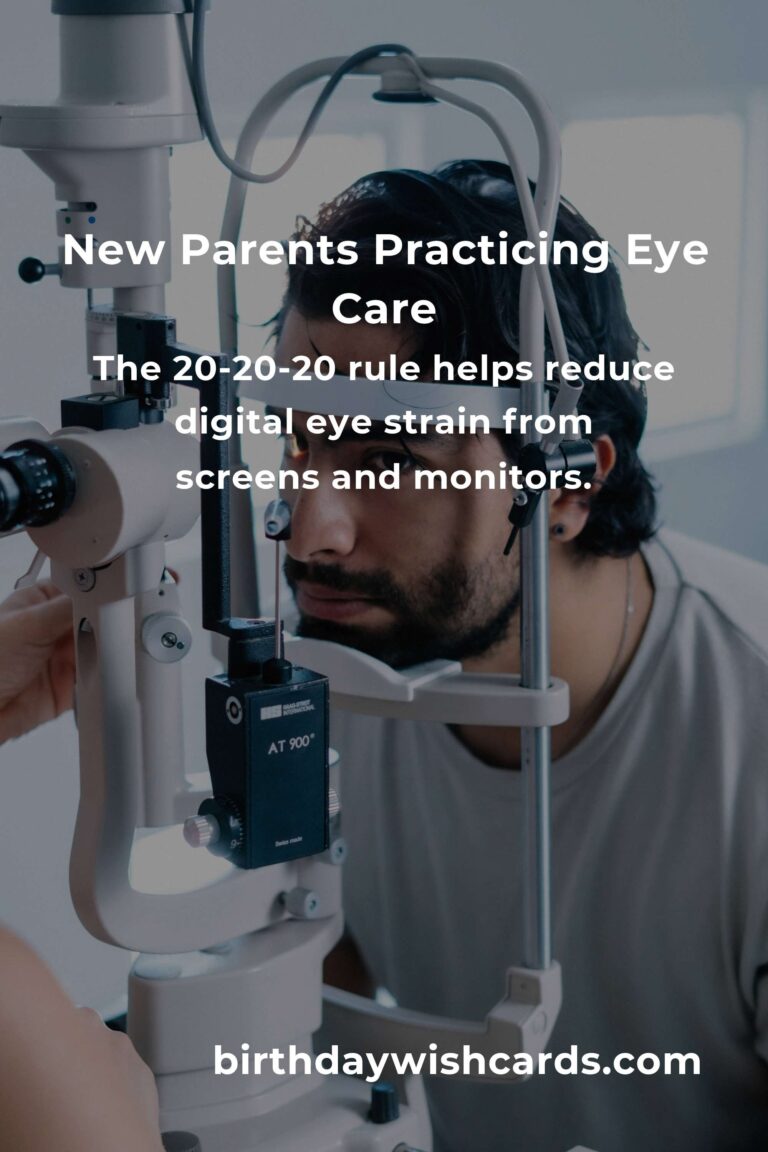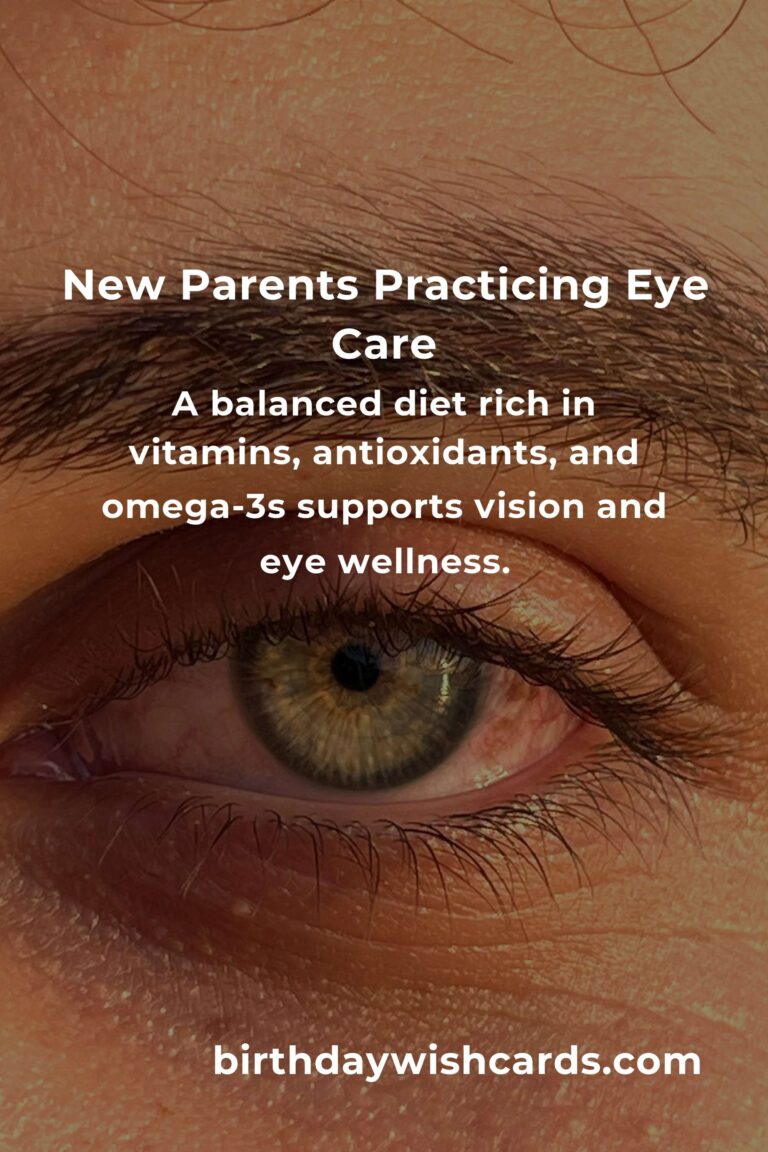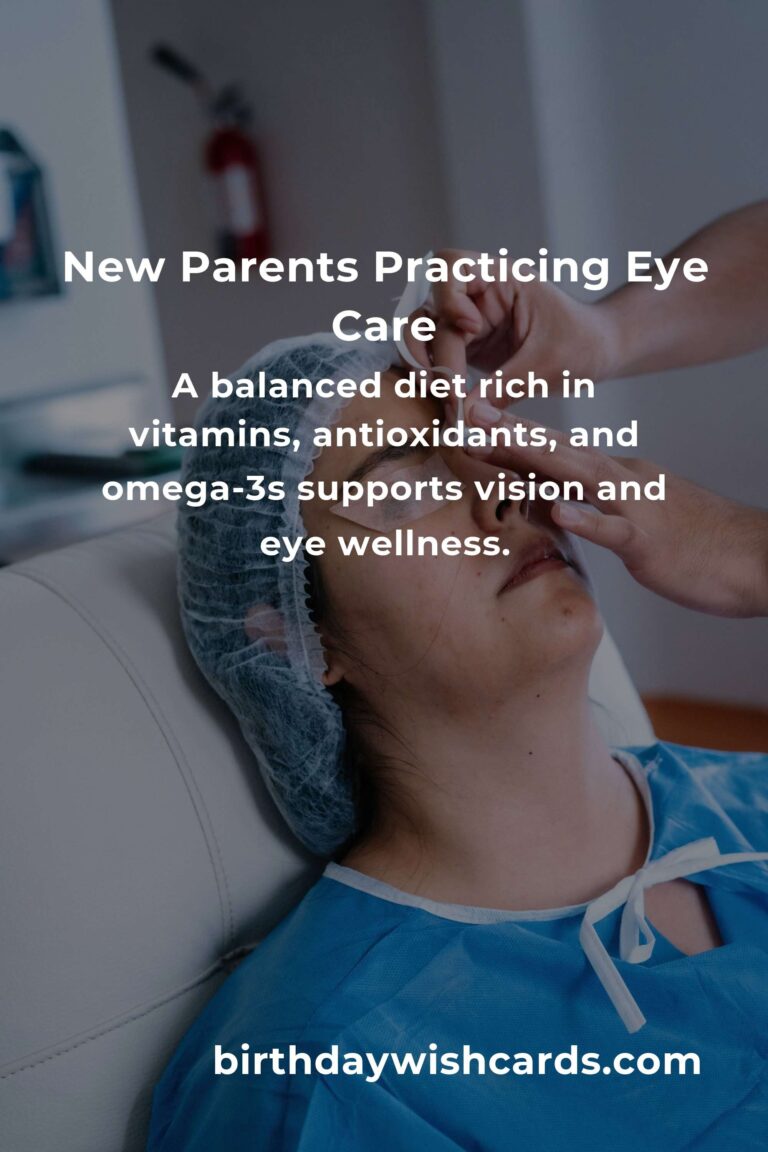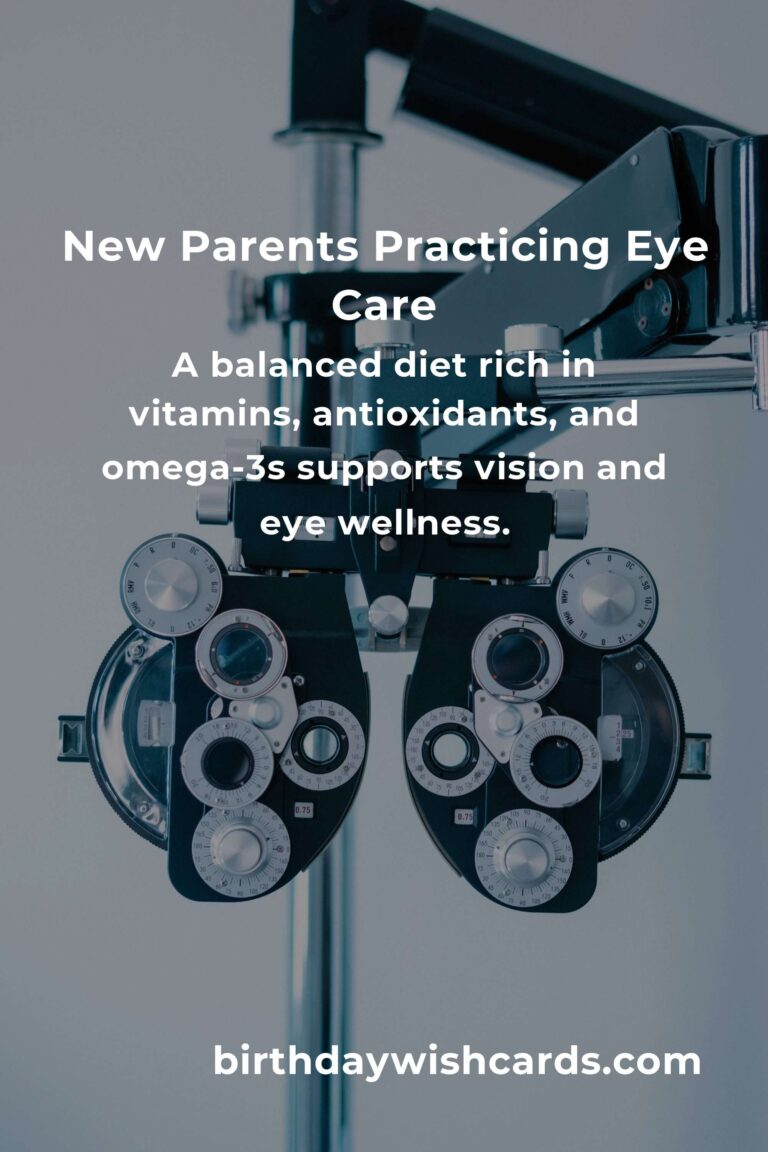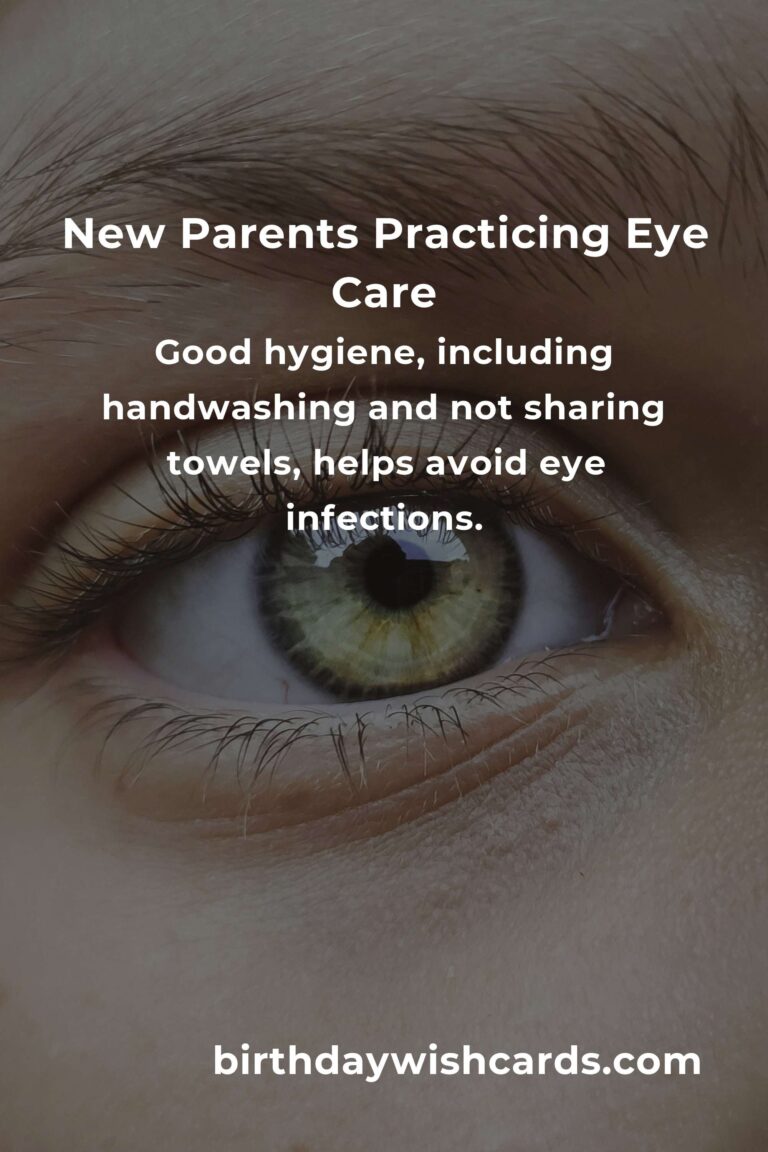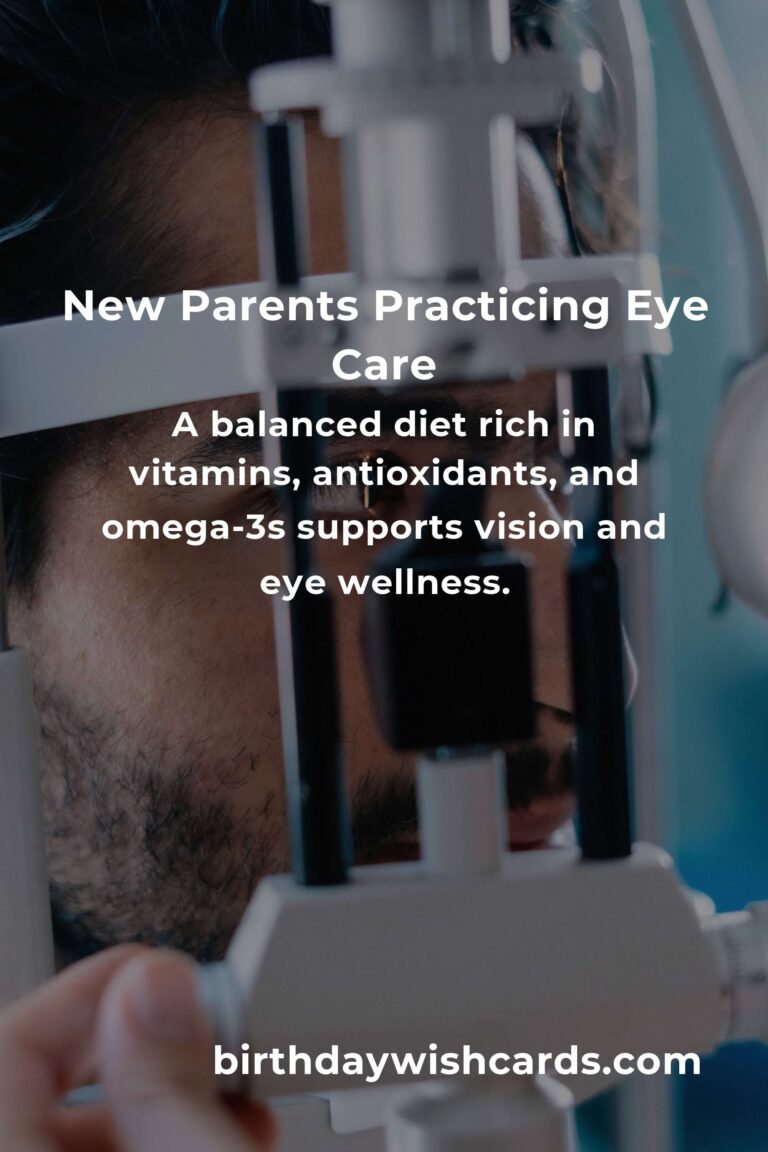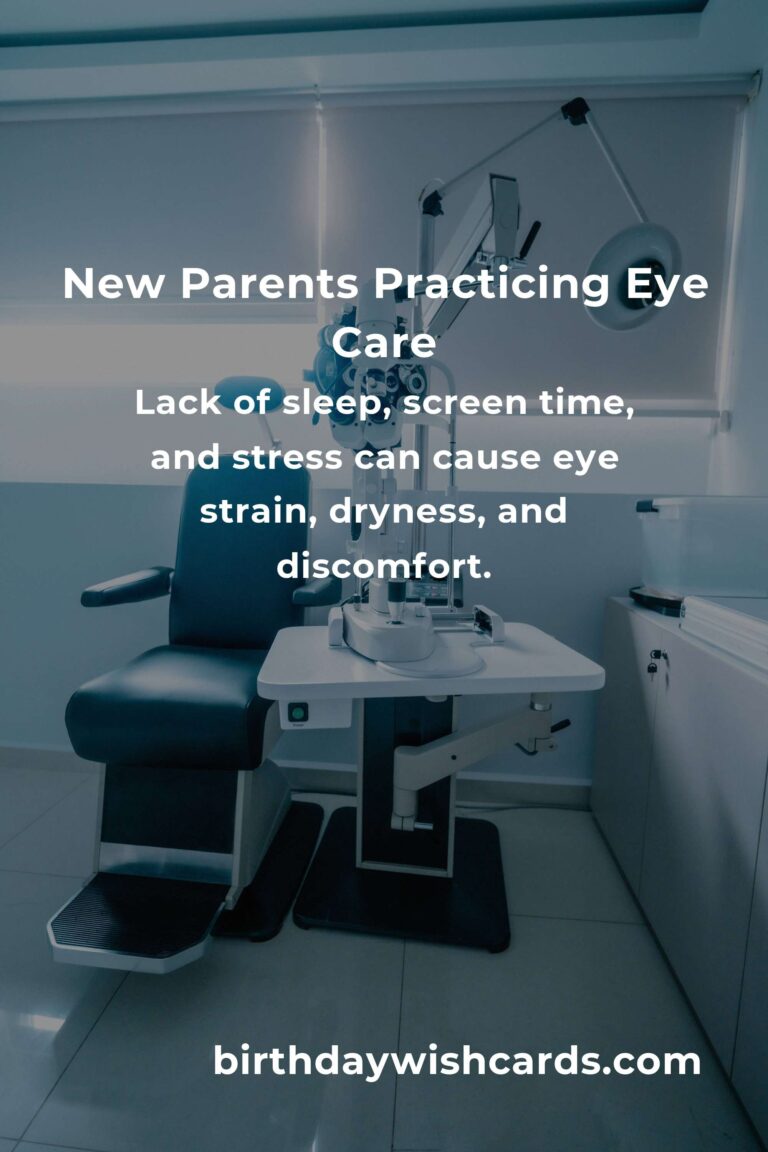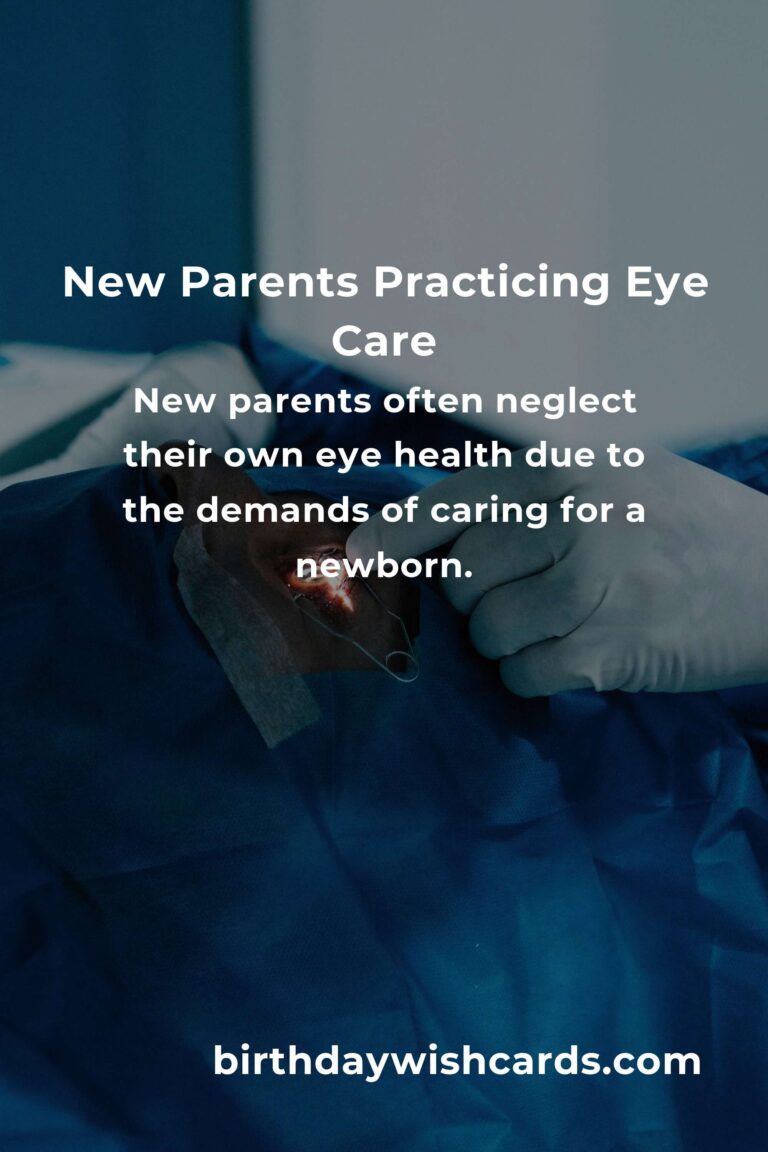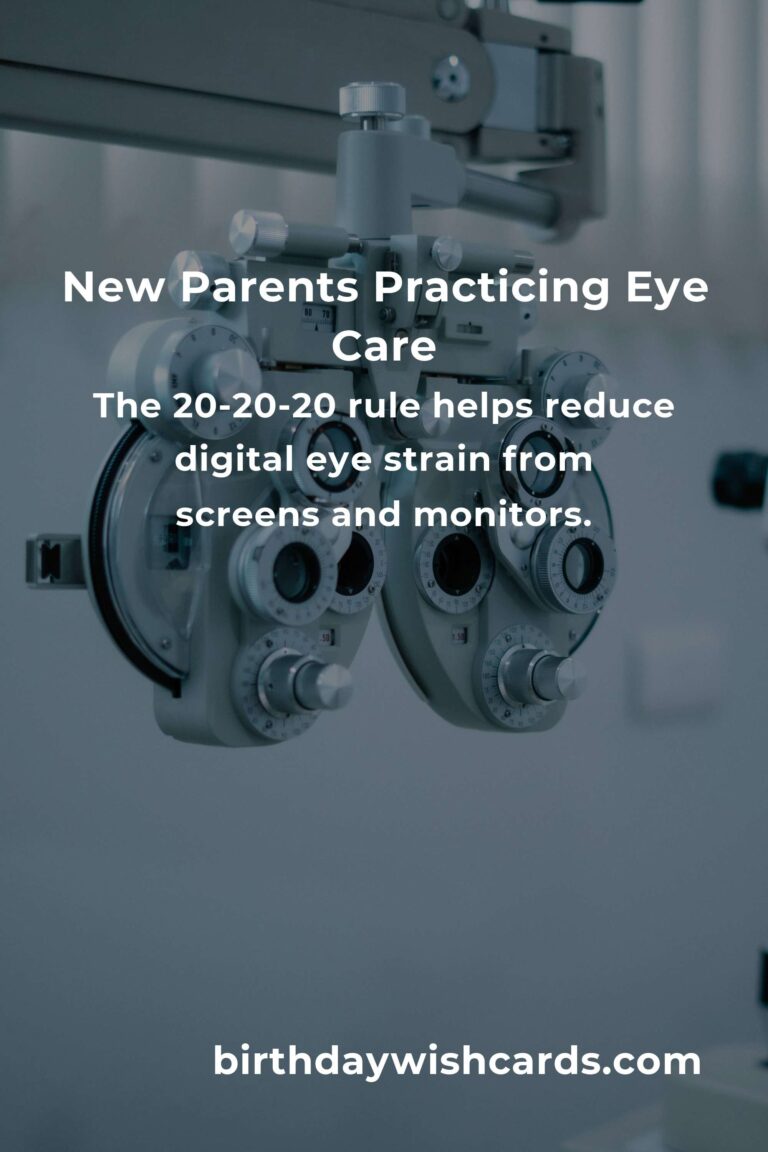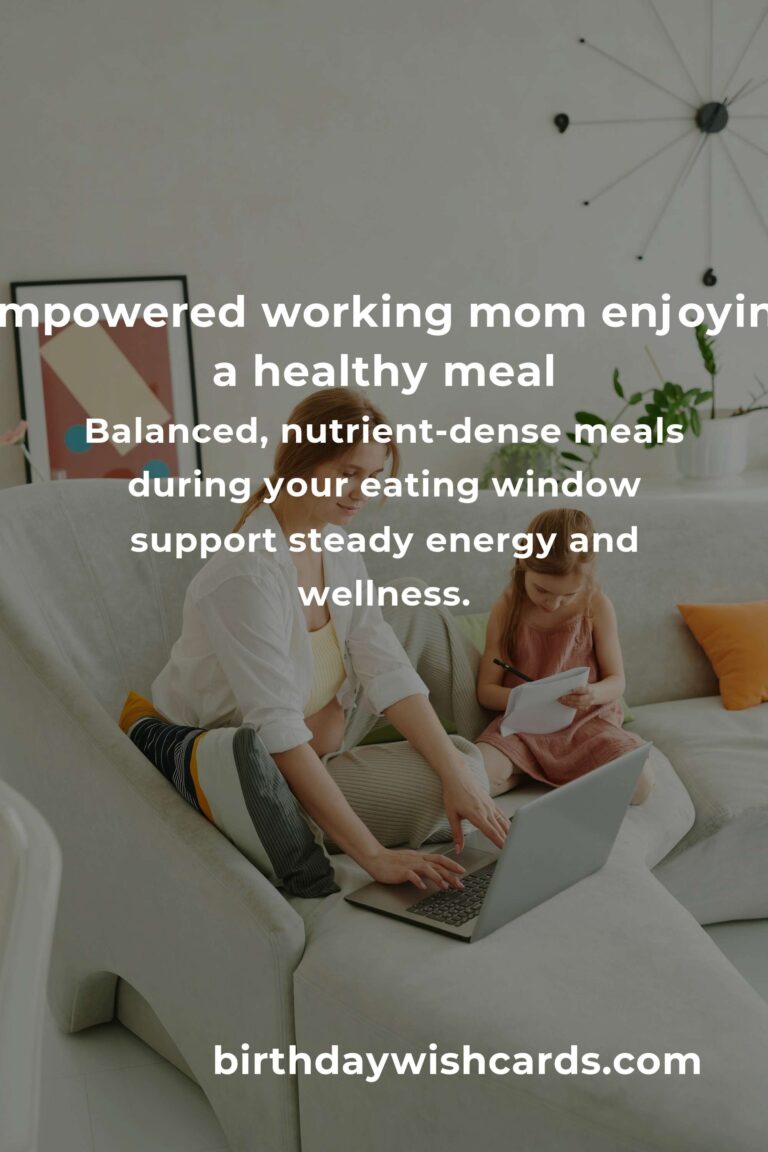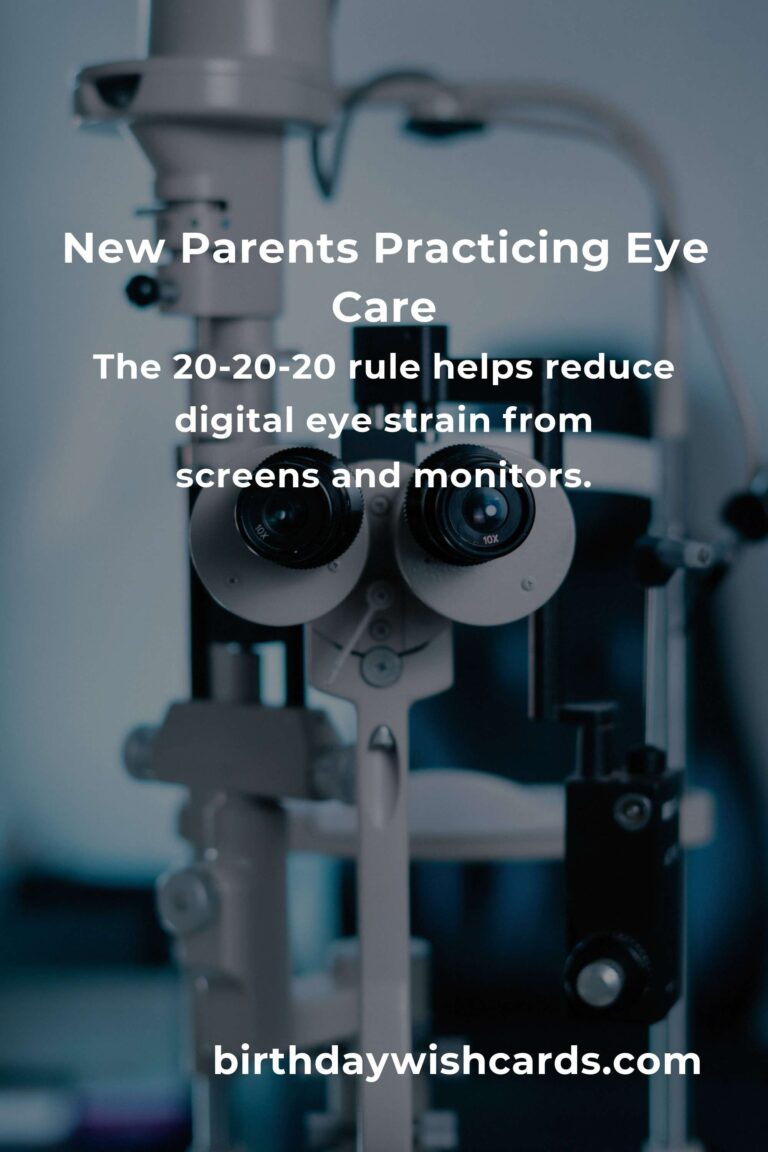
Becoming a new parent is one of life’s most beautiful journeys, filled with joy, sleepless nights, and a million new responsibilities. Amidst the whirlwind of caring for a newborn, it’s easy to overlook your own health—especially your eye health. However, healthy eyes are essential for navigating those precious first months and years with clarity, safety, and joy. This guide is dedicated to helping new parents improve and maintain their eye health, ensuring that you can fully experience every magical moment with your child.
Why Eye Health Matters for New Parents
As a new parent, your eyes are constantly at work. Whether you’re reading baby books, soothing your little one in the dim early hours, or simply marveling at your baby’s first smile, you depend on clear, comfortable vision. However, the demands of parenthood—lack of sleep, increased screen time, and stress—can take a toll on your eyes, leading to discomfort and even vision problems.
Recognizing the importance of eye health is the first step toward self-care. Not only does good vision help you care for your baby more effectively, but it also enhances your ability to cherish these fleeting moments. Let’s explore practical, emotional, and medical ways to prioritize your eye health as a new parent.
Understanding the Challenges: How Parenthood Affects Eye Health
New parents face unique challenges that can impact their eyes:
- n
- Lack of Sleep: Sleep deprivation can cause dry, red, or irritated eyes and even blurry vision.
- Increased Screen Time: Whether you’re scrolling for parenting tips or watching baby monitors, screens are everywhere, leading to digital eye strain.
- Emotional Stress: Stress and anxiety can trigger headaches and eye discomfort.
- Poor Nutrition: Skipping meals or relying on convenience foods can deprive your eyes of essential nutrients.
- Environmental Factors: Dry air from heating or air conditioning, as well as exposure to dust or allergens, can irritate sensitive eyes.
n
n
n
n
Practical Steps to Improve Eye Health for New Parents
1. Prioritize Quality Sleep—For You and Your Eyes
It’s no secret that new parents struggle to get enough rest. While you may not control your baby’s sleep schedule, you can take steps to improve the quality of your own rest:
- n
- Nap when your baby naps—even short rests can help.
- Create a bedtime routine to signal your body it’s time to wind down.
- Keep your bedroom dark and cool for optimal sleep quality.
- Limit screen use before bed to reduce blue light exposure, which can disrupt sleep and strain eyes.
n
n
n
Remember, rested eyes are healthier eyes. Even fragmented sleep is valuable, so seize every opportunity to recharge.
2. Manage Screen Time and Practice the 20-20-20 Rule
Digital eye strain is becoming increasingly common, especially for parents using screens to monitor their baby, connect with loved ones, or seek advice. Symptoms include dryness, blurred vision, and headaches. To combat this:
- n
- Every 20 minutes, look at something 20 feet away for at least 20 seconds.
- Adjust screen brightness and use blue light filters when possible.
- Hold devices at arm’s length and position the screen to avoid glare.
- Use artificial tears if your eyes feel dry after long screen sessions.
n
n
n
These simple habits can help protect your eyes from the stress of modern parenting.
3. Nourish Your Eyes with a Balanced Diet
Nutrition plays a crucial role in maintaining eye health. Key nutrients include:
- n
- Vitamin A: Found in carrots, sweet potatoes, and leafy greens, it helps maintain clear vision.
- Omega-3 Fatty Acids: Found in salmon, flaxseed, and walnuts, they reduce dry eye symptoms and support retinal health.
- Lutein and Zeaxanthin: Found in spinach, kale, and eggs, these antioxidants protect eyes from light damage.
- Vitamin C and E: Found in citrus fruits, nuts, and seeds, they help prevent age-related eye damage.
n
n
n
Even on busy days, try prepping healthy snacks or meals in advance and keep nutrient-rich foods handy for quick energy and eye support.
4. Stay Hydrated
Dehydration can exacerbate dry eyes and fatigue. Keep a water bottle nearby and sip regularly, especially if you’re breastfeeding, as your fluid needs will be higher. Herbal teas and water-rich fruits like cucumber and watermelon can also help keep you hydrated.
5. Protect Your Eyes from Environmental Irritants
Indoor heating, air conditioners, and household dust can irritate your eyes. Take these steps to minimize discomfort:
- n
- Use a humidifier in your bedroom to add moisture to the air.
- Keep air vents clean and dust surfaces regularly.
- Wear sunglasses outdoors to shield your eyes from sun and wind.
- Take breaks from staring at baby monitors or nightlights in low-light rooms.
n
n
n
6. Practice Good Eye Hygiene
Eye infections can spread easily, especially when you’re constantly touching your face and your baby’s. Always wash your hands before rubbing your eyes or handling contact lenses. Replace eye makeup regularly and avoid sharing towels with others.
7. Address Allergies Promptly
If allergies are causing itchy, watery eyes, talk to your doctor about safe treatments. Some over-the-counter eye drops are safe for breastfeeding parents, but always check with your healthcare provider first.
8. Schedule Regular Eye Exams
Don’t put off your own health checkups. Comprehensive eye exams can detect early signs of eye disease, correct vision changes, and provide peace of mind. Let your eye doctor know you’re a new parent—some vision changes are normal postpartum, but it’s important to rule out anything serious.
Emotional Wellness and Eye Health
Parenthood is emotionally intense. Stress and fatigue can affect not just your mind, but your eyes as well. Here are some ways to care for both:
- n
- Practice mindfulness or gentle yoga to reduce stress, which can lessen tension headaches and eye strain.
- Allow yourself time to adjust to your new role—accept that it’s okay to ask for help.
- Stay connected with your support system, whether friends, family, or online communities.
- Take brief moments throughout the day to close your eyes, breathe deeply, and reset.
n
n
n
Emotional wellness is deeply connected to physical health, including your eyes. When you nurture your emotional well-being, your whole body—including your vision—benefits.
When to Seek Help: Warning Signs Not to Ignore
While most eye discomforts are temporary, some symptoms warrant prompt medical attention:
- n
- Sudden vision loss or double vision
- Severe eye pain or redness
- Flashing lights or floaters in your vision
- Persistent dryness, irritation, or discharge
n
n
n
If you experience any of these symptoms, contact your eye doctor immediately. Timely care can make all the difference.
Building Healthy Eye Habits for the Whole Family
As your baby grows, your own healthy habits set the tone for your family’s wellness. Here’s how to encourage eye health for everyone:
- n
- Model good screen habits and take breaks together.
- Prepare balanced meals rich in eye-healthy nutrients for the whole family.
- Make regular eye checkups a family routine.
- Encourage outdoor play and time in natural light.
- Teach children not to rub their eyes and to wash their hands frequently.
n
n
n
n
When you care for your own eyes, you’re better equipped to care for your child’s, too.
Conclusion: Seeing Every Precious Moment Clearly
Parenthood is filled with moments you’ll want to remember forever: a baby’s first gaze, their gentle smile, the way they reach for you in the middle of the night. By prioritizing your eye health, you give yourself the best chance to see and cherish every one of these milestones. Remember, taking time for self-care isn’t selfish—it’s a way to ensure you’re fully present for your new family.
Adopt small but meaningful eye care habits, seek support when you need it, and schedule regular checkups. Your eyes are windows to the world—and to every magical memory with your child. Here’s to brighter days and clearer vision ahead!
New parents often neglect their own eye health due to the demands of caring for a newborn.
Lack of sleep, screen time, and stress can cause eye strain, dryness, and discomfort.
Prioritizing rest, even in short naps, is essential for healthy eyes.
The 20-20-20 rule helps reduce digital eye strain from screens and monitors.
A balanced diet rich in vitamins, antioxidants, and omega-3s supports vision and eye wellness.
Hydration and protection from environmental irritants prevent dry or irritated eyes.
Good hygiene, including handwashing and not sharing towels, helps avoid eye infections.
Managing stress and practicing mindfulness benefits both emotional and physical eye health.
Regular eye exams can catch problems early, providing peace of mind for new parents.
Small daily habits can make a big difference, helping parents see and enjoy every moment with their child.
#EyeHealth #NewParents #SelfCare #ParentingTips #VisionWellness #HealthyHabits #FamilyWellness #SleepMatters #DigitalDetox #CherishTheMoments


